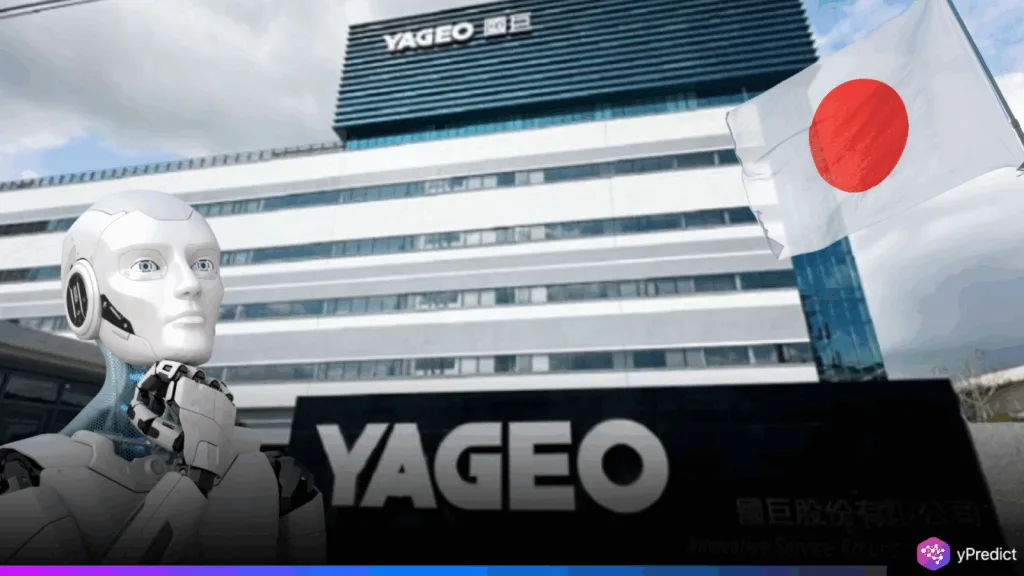
Taiwan’s Yageo Corp. has promised to keep Shibaura Electronics’ cutting-edge AI sensor technology in Japan if its takeover bid succeeds. Chairman Pierre Chen made the assurance as Tokyo weighed national security and shareholder interests. Shibaura’s thermistors, critical for temperature monitoring in AI data centers, are considered strategic assets. “It’s not in Yageo’s interest to see this tech exported to countries Japan deems unfriendly,” Chen said. The move comes amid growing scrutiny over foreign acquisitions of Japanese tech firms. Yageo is offering ¥6,200 per share, outbidding rival Minebea Mitsumi’s ¥5,500 offer. The tender ends June 19.
Shibaura’s AI Thermistor Tech Seen as Strategic Asset in Global Chip Race
Shibaura Electronics, a niche but crucial supplier of AI-focused thermistor sensors, has become a national security flashpoint in Japan’s evolving technology policy. The company’s thermistors are vital for AI infrastructure, where precise temperature control is essential to safeguard high-performance servers processing enormous datasets. As Taiwan’s Yageo attempts to acquire Shibaura, Japanese officials are trying to balance investor value with fears of tech leakage. Yageo’s chairman, Pierre Chen, has proactively addressed these concerns, pledging tighter controls than current standards to ensure Shibaura’s intellectual property doesn’t leak abroad. “We will not transfer Shibaura’s advanced technology to any third country, especially not to regions Japan classifies as ‘unfriendly,’” he told reporters in Taipei.
Chen confirmed Yageo’s team will meet with Shibaura executives the week of June 16 to discuss the offer. The Taiwanese electronics giant has also maintained strong lines of communication with Japan’s Ministry of Economy, Trade and Industry (METI), signaling its willingness to cooperate with Japanese regulatory frameworks. However, Shibaura has yet to officially comment on the bid. Calls to METI went unanswered outside business hours. The acquisition has stirred debate in Japan’s business circles, with some expressing unease over increasing foreign interest amid a historically weak yen and growing emphasis on AI sovereignty.
Foreign Takeover Debate Heats Up as Yageo Battles Minebea for Shibaura
Yageo’s ¥6,200 per-share offer places it in direct competition with Nintendo supplier Minebea Mitsumi, which previously offered ¥5,500 per share for Shibaura. The bidding war underscores both the financial value and strategic importance of AI component suppliers in today’s market. As Japan faces a crossroads between global investor openness and domestic tech protectionism, the Shibaura deal is shaping up as a critical case study. Pierre Chen has avoided confirming whether Yageo will extend its offer beyond the June 19 deadline but emphasized that his company respects Japan’s regulatory structure and technological sensitivities. “We understand the climate around AI technology. Our goal is to enhance Shibaura’s capabilities within Japan, not export them,” Chen reiterated.
While some Japanese officials support increased foreign investment to improve corporate governance and unlock shareholder value, others are alarmed at how easily strategic assets can be targeted, especially given the yen’s depreciation. This environment has catalyzed more foreign bids, creating political friction. METI’s final stance could influence future M&A activity involving sensitive tech assets. Meanwhile, Japanese firms are being urged to reduce cross-shareholdings to improve market efficiency, which ironically makes them more vulnerable to acquisition attempts. The outcome of this contest may set a precedent for future tech-related deals.
AI Sovereignty and Foreign Investment Clash in Shibaura Bidding Battle
The battle for Shibaura Electronics highlights Japan’s delicate balancing act between economic openness and technological sovereignty in the AI age. With thermistors powering vital infrastructure in AI data centers, control of such technology carries national significance. While Yageo insists Shibaura’s innovation will remain in Japan, resistance from Japanese business circles reflects broader fears of strategic dependency. As global demand for AI accelerates, countries like Japan are reassessing how much foreign control they can tolerate over core digital assets. The Yageo-Shibaura deal may become a bellwether for Japan’s future AI infrastructure policy and global tech alliances.






